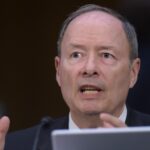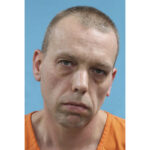
UNITED NATIONS (AP) — The U.N. special envoy for South Sudan urged the country’s leaders on Tuesday to intervene to halt clashes and sexual violence and urged that a two-year delay in holding elections not be used as “a holiday break.”
Nicholas Haysom told the U.N. Security Council that while some noticeable progress has been made in implementing a 2018 peace agreement, key deadlines have been missed amid a worsening humanitarian crisis. According to forecasts, 9.4 million of the country’s roughly 12 million people will need humanitarian aid next year, which he called “an alarming figure.”
There were high hopes when oil-rich South Sudan gained independence from Sudan in 2011 after a long conflict. But the country slid into civil war in December 2013 largely based on ethnic divisions when forces loyal to President Salva Kiir battled those loyal to Vice President Riek Machar.
Tens of thousands of people were killed in the war, which ended with the 2018 peace agreement that brought Kiir and Machar together in a government of national unity which was supposed to hold elections before February 2023.
The Security Council meeting followed last week’s announcement that South Sudan’s ruling party endorsed Kiir — the country’s only president since it gained independence — for another term in elections now scheduled for December 2024.
Haysom said legal and technical arrangements for elections should be finalized soon.
A first step has been taken to reconstitute the National Elections Commission, which will manage the electoral process, he said, but the issue of quotas for women and the disabled remain unresolved. He also expressed concern that deadlines for a political parties act, a reconstituted constitutional review commission, and the establishment of a constitutional drafting committee have all been missed.
“We are concerned that delays are already having a domino effect on subsequent key benchmarks,” Haysom said.
On the security front, the U.N. envoy expressed concern at clashes among armed militias which are causing displacement in northern Jonglei and Upper Nile states, and worries about intercommunal violence in northern Warrap state and ongoing cattle raiding and migration-related conflicts in the three Equatoria states.
Clashes along the strategically important Nile River corridor have “taken on an ethnic dimension, and I condemn the human rights violations and abuses that have included killings, conflict-related sexual violence, pillaging and large-scale displacements,” he said.
Haysom, who heads the U.N. peacekeeping mission in South Sudan, said that following the graduation of the first contingent of unified forces the government must now take action to deploy them to hotspots “to serve as a truly national army.”
He stressed that “the worsening humanitarian crisis … is a reminder of the imperative for the parties to deliver on their commitments in the peace agreement.”
U.S. political counselor John Kelley echoed Haysom’s call for the country’s transitional leaders to deliver on the peace agreement and address immediate issues including the ongoing violence in Upper Nile and Jonglei states, and the dire humanitarian situation.
The violence in Upper Nile reportedly killed an estimated 500 civilians and displaced another 15,000, he said.
“It is abundantly clear that South Sudan’s leaders need to resolve this crisis,” Kelley said. “We urgently call on South Sudan’s leaders to act now and end the violence” as well as reported human rights violations including sexual violence and the rape and gang rape of girls as young as 8-years-old.
On the political front, Kelley said the United States reiterates its disappointment at the decision by South Sudan’s leaders to extend the transition and delay elections for another two years, “despite failing over the past four years to deliver fully on the commitments they made in the 2018 revitalized peace agreement.”




